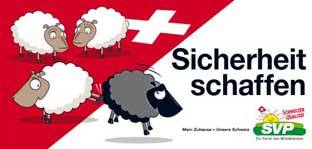Neither of these arguments seem to make sense to me nor weigh up to the possible strategic role of food. I'll try to 'debunk' them by addressing first the economic realities by focussing on what would happen when a more free trade agricultural policy would be achieved. Secondly, something which most people forget, I'll address the political-economic nature of agriculture. Note that I'm arguing in favor of a Common Agricultural Policy, this doesn't mean that I consider the current policy 'amazing', there are lots of things that can and need to be changed (increases of scale, bringing down the number of small scale farmers). But what I'm trying to prove is that it makes sense to be protectionist from a strategic perspective and that it also makes sense from a leftist point of view because opening up of agricultural markets would make the developing world worse of in the longterm.
First, the economics. Current protectionism means that European farmers get higher prices than what they would get under free market conditions. The excess harvest which is the result of overproduction (which has decreased in recent years) usually gets dumped below world (and domestic) market prices in the developing world. Which also means that consumers in those countries profit from it, except the ones who work in agricultural sector (a large part of the workforce) . Now what would happen if we open up markets. There would only be a few few countries capable of being large scale export producers: Argentina, Brazil, the USA, New Zealand, Canada and Australia (because of land, technology and climate).
What would this mean vis à vis the other developing countries? Given that the current dumping prices are below market prices they would suffer from a price increase. Yes this would of course stimulate the export there too (which would be small compared to the big 6), except that would make an even larger part of the local population starve, the ones that can't afford world market prices. However this pricing fixation, which can be debated because I went over it without much caution given that its not the core of my argument, ignores the concessions the developing world would have to make at the WTO to get an agreement with the developed world. They would have to give up protectionist measures in industrial related sectors which would harm their longterm development and economic growth. So the short term gains by an increase in export would be offset by the limits on investment measures the government can take to stimulate local industry. A wiser decision would be for them to focus upon agricultural products designed for export, the ones the developed world doesn't produce itself.
What would it mean for the EU and the European consumers? Well for the latter it won't mean that much given the % of food expenditures in their overall budget. For the majority of European farmers, it would probably lead to bankruptcy. But what would it mean for the European Union as a whole? This brings me to strategic and political-economic part of agriculture. I'd wish everyone had learned a thing or two about foreign energy dependence but apparently they haven't. Since there are only a couple countries with the possibility to 'feed the world' (as the Brazilians like to say of themselves) it would make us dependent on a couple of countries. Given that Argentina has already suspended the export of beef in the past because of domestic price concerns and the Ukraine appears to do the same with its sun flower oil, it doesn't seem wise to me to be too dependent on imports when it concerns such a basic necessity as food. Which could undoubtedly be used the same strategic way as oil and gas are used today, especially if it would be in the hands of only 6 producers.

